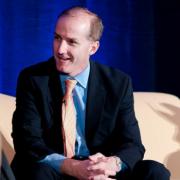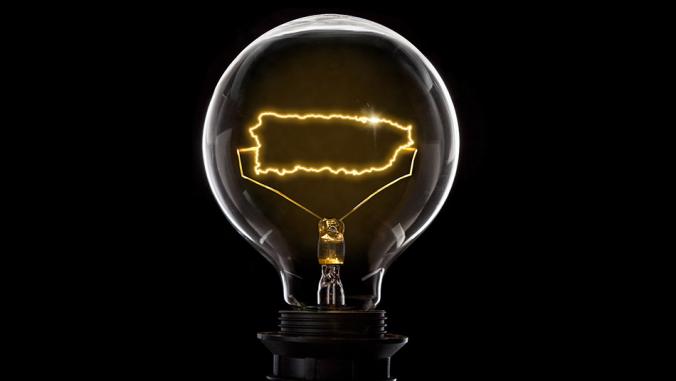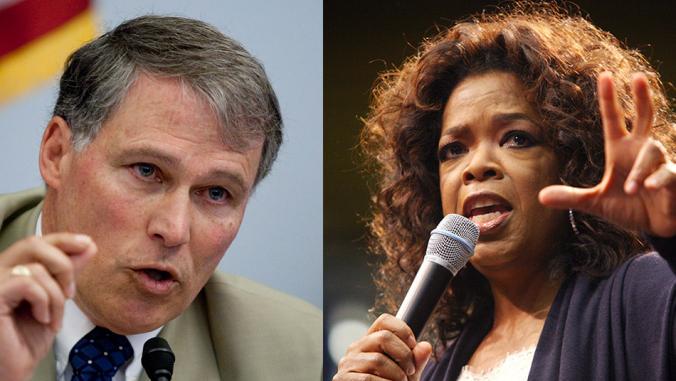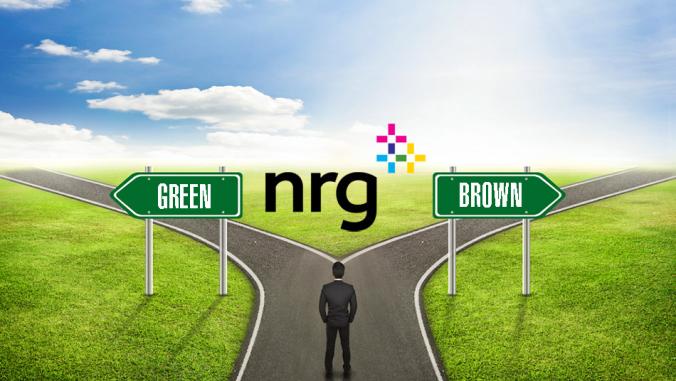The human stories behind the 'coal wars'
Coal is no longer king. Here's a closer look at its end game.

Editor's note: David Crane will appear on this week's episode of National Geographic Channel's "Years of Living Dangerously." Check local listings.
Just a decade ago, coal was flying high.
Buoyed by high natural gas prices, with climate change but a distant concern to the hyper-myopic power industry, our singular focus at NRG was feeding the machine — securing and delivering the tens of millions of tons of coal needed to satiate the voracious appetite of our thermal power plants.
Back then, there were pinch-points in our national coal transportation system, one of which was a shortage of coal cars. We decided to solve that problem by acquiring a couple thousand new rail cars of our own. It was my first big acquisition at NRG.
I doubt, stopped at a train crossing, you have ever paid attention to the individual coal carriers whose passage is temporarily frustrating your car journey. Most are unkept and uncared for and virtually all are unbranded by their owner. Intentionally so. Traffic nuisances, carrying a necessary but unloved product, coal carriers trundle incognito across the American landscape.
We wanted to be different. We were proud of our role in keeping the lights on across the country; we were proud of our power plants and, most of all, wanted to honor the men and women who worked, day and night, under every condition to keep that coal coming. So I insisted that every one of our coal cars, as they came off the assembly line, be stenciled with both the name of an NRG coal plant and the name of an individual coal handler from that plant.
I insisted that every one of our coal cars ... be stenciled with both the name of an NRG coal plant and the name of an individual coal handler from that plant.
When the day came for the first carrier to come off the line, we conjured up a "christening" ceremony. We flew about 15 coal handlers, each with more than 20 years' experience, from plants around the country to the FreightCar America factory in Danville, Ill. It was the dead of winter. We ate our celebratory dinner at a place with raw meat on display in the in the window and we stayed at a budget hotel that catered to visitors to the medium-security prison across the parking lot.
The cavernous factory was bleak and bitter cold. A worse place to work I could not imagine (until a couple years later when I toured an underground coal mine). It fell to our most senior employee, a coal handler from our Dunkirk Plant in upstate New York named Robert Adams Jr., to do the honors.
After breaking the ceremonial bottle on the "bow" of the first coal car and the unveiling of his name on the car, Bob came up to me, eyes glistening, with hand extended, "David, I have worked at Dunkirk 37 years and before me, my father worked there for 30. Today," he said as he looked up at his name on the looming on the carrier's side wall, "my father would be very proud of me."
This is my point — as we consider the looming cost to all humanity of coal-fired generation, let's not forget the human cost to workers such as Bob Adams who powered American prosperity through the 20th century and into the 21st. On Dec. 14, "Years of Living Dangerously" airs the final episode of its second season, featuring America Ferrera and focused on another NRG coal plant — this one in Waukegan, Illinois — as it struggles through its own end game.
Unloved by (mostly) all
The Waukegan power plant is supported — often silently — by those who depend upon it economically; opposed by those who focus on the local and global environmental consequences of its operations. It is unloved by all, except for the professionals who made bringing the plant online each day their life's work.
A few weeks ago, Detroit Edison announced it was shuttering all but one of its remaining coal plants across the lake in Michigan. The coal era is ending, weakened to be sure by relentless environmental pressure, but mortally wounded — ironically enough — by natural gas, another fossil fuel which is only marginally less carbon-emitting
The coal era is ending ... mortally wounded — ironically enough — by natural gas, another fossil fuel which is only marginally less carbon-emitting.
Ferrera is an accomplished actress with an extraordinary back story of her own. Maybe that is what makes her both incisive and empathetic as an interviewer. I have not yet seen this week's episode, but judging from the questions she asked me, America will focus on the gut-wrenching community and personal stories that underpin this most global of issues.
Yet the faces you will not see — the voices you will not hear — will be the men and women who work at the Waukegan Power Plant. And this will not be because Ferrera or "Years of Living Dangerously" is insensitive to them, but because NRG, following conventional corporate procedure, will not have made them available for interviews, on-camera or off.
And that is a shame. My colleagues who worked at our coal plants were the finest people I have had occasion to know, and they deserve to be heard. So, in their absence, spare a thought for them.
For my part, in the years since, I have thought of my encounter with Bob Adams often but only saw him once more. At Dunkirk, at work, his face and uniform stained by the pervasive coal dust that hung in the air, he greeted me warmly and we talked — for the 30 seconds he had to spare while they were moving the next coal car into position. Then he broke off the conversation to return to his controls.
You have to understand that it is not common in big companies for employees to walk away from their CEO, but there was a coal train that needed to be unloaded, and coal trains wait for no man, not even the CEO.





